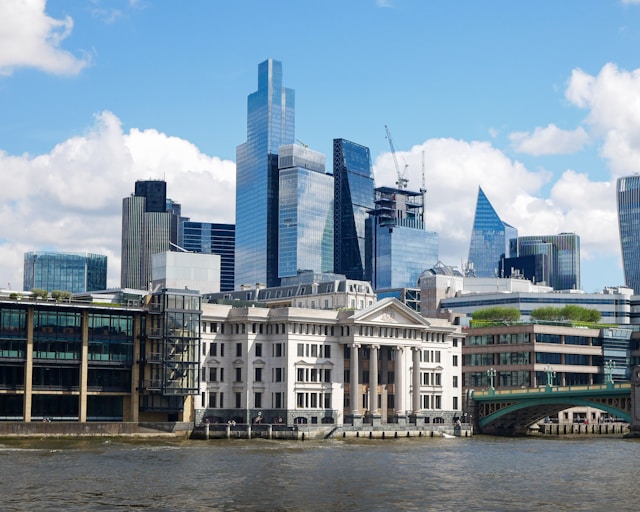Oracle Share Price Analysis: Bearish Phase, Valuation Signals and Bullish Reversal Outlook
$154.97
04 Feb 2026, 11:45

Unsplash.com

Prime Minister Sir Keir Starmer has fuelled concerns in the business community after an interview with the BBC where he refused to rule out an increase in National Insurance paid by employers. Despite repeating his pre-election promise not to raise taxes, (including National Insurance), for working people, Sir Starmer evaded questions about which taxes would rise in the October budget to plug the hole in public spending. This follows Chancellor Rachel Reeves statement that the promise not to rise National Insurance only applied to what employees’ paid. Business groups have reacted angrily to the suggestion, claiming that an increase in National Insurance for employers would ‘hobble’ economic growth and damage companies’ abilities to hire staff and create new jobs. One group warned that the hospitality sector would be particularly hit by any increase.
Labour has sought to strike a balance between pro-worker and pro-business in its policy decisions and has claimed that economic growth is a top priority. But the build-up to the budget on 30th October has seen repeated warnings of tough decisions to come and claims that things will get worse before they get better as Labour seeks to plug a £22 billion black hole they claim to have inherited from their Conservative Predecessors. But following today’s interview, business groups are going on the offensive to try to ward off any tax increases that may hit businesses.
The CBI, a lobby group representing 170,000 firms, claims that that current uncertainty and fearmongering about what the end of October may bring has caused employers to rethink how many new workers they are willing to employ. Chief Executive Rain Newton-Smith said a National Insurance, alongside increases in the National Living wage and soaring energy bill costs, could see the number of new jobs being created drop as firms will struggle to meet the cost of new hires. Kate Nicholls of UK Hospitality, pointed out that the hospitality industry would be particularly vulnerable to the impact of a rise, as staffing costs are the sectors’ ‘biggest expense.’ Speaking on behalf of the British Chambers of Commerce, director of policy Alex Veitch said that hiking National Insurance would be a mistake, damaging growth and preventing employers from investing in their staff – ‘Firms are run by working people. Nearly all UK Companies are small… family-owned and they are the anchors of our local economy.’ Craig Beaumont of the Federation of Small Businesses went further – calling out the Government’s ‘cast-iron’ manifesto ‘commitment’ not to increase National Insurance contributions for small employers. A rise would ‘make every job in all our local communities more expensive to maintain.’
While it is still unclear if or what a rise in National Insurance would consist of, speculation is that companies may have to pay a levy on pension contributions, as well as just on current earnings. National Insurance contributions are the UK’s second largest revenue stream aside from income tax. The present rate that employers pay is 13.8% on a worker’s earnings about £175 per week. With the infrastructure already in place, any change can be implemented quickly potentially with weeks of the announcement thanks to digitalised payroll systems. As a result many see an increase as an inevitable choice for the Government due to this quick turnaround. The Institute for Fiscal Studies (IFS) estimated that an increase of just 1% could add as much as £8.5 billion annually to the public purse. A subsidy on pension contributions of 10% would generate around £4.5 billion per year. However, these calculations do not factor in the effect any rise would have on other taxes, such as income or corporation tax, depending on how companies chose to absorb the extra cost.
Either way, any movement on National Insurance could prove a dangerous one for the Government as it threatens to undermine confidence in the new Cabinet. Following moves such as scrapping the winter fuel pay out and controversy over cabinet members personal spending, Reeves is under close scrutiny to present a budget that delivers on Labour’s promise of economic growth. With anticipation and anxiety building over what ‘difficult choices’ are being announced on October 30th, the perceived panic from the business community over National Insurance will not be welcome.
(Soiurces: bbc.co.uk)